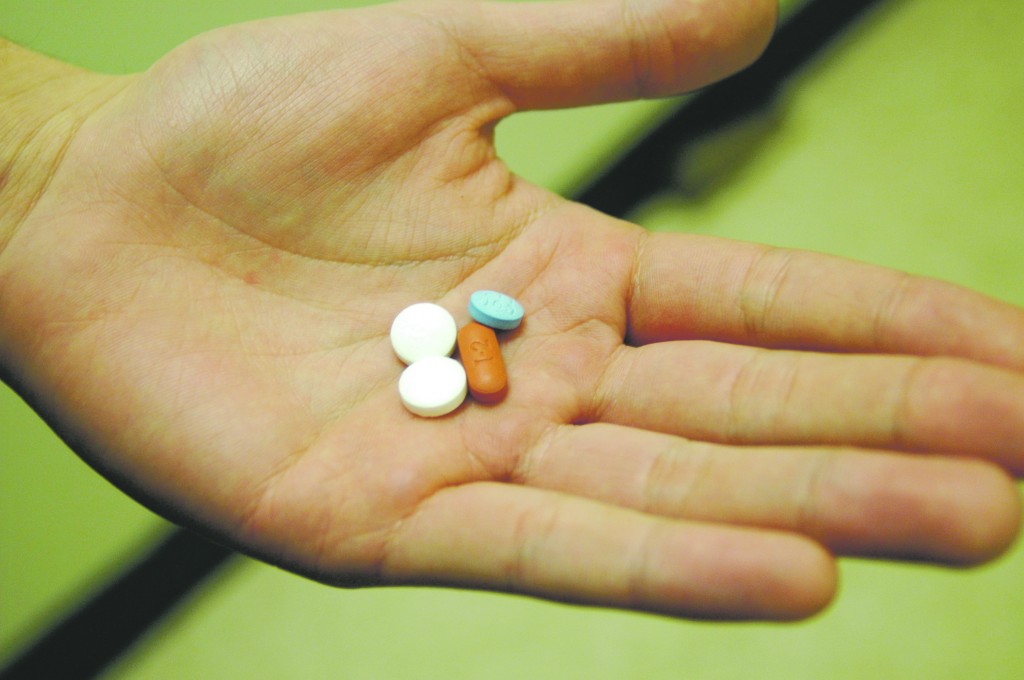
It’s the week that can make or break a GPA, when all-nighters and cram-sessions abound. During finals week, some students turn to prescription drugs like Adderall and Ritalin, which are commonly prescribed to those with Attention Deficit Hyperactivity Disorder (ADHD), to help stay focused and get a leg up. But is this last minute solution part of a greater trend in drug use?
A 2009 survey commissioned by the U.S. Department of Health and Human Services estimated that 6.4 percent of students used Adderall for non-medical reasons that year. Researchers from the University of Kentucky put the number as high as 34 percent.
“Individuals who have ADHD — it helps them to be able to have a normal performance,” said David Werner, a psychology professor at Binghamton University. “Students want them because they feel it is going to help them perform better by being able to study later.”
Officials are aware of the trend but unsure how to stop it. Patrick Reilly, investigator of Binghamton’s New York State University Police, said UPD tends to catch only one or two prescription drug offenders a semester.
“As far as the selling of it goes, I’ve heard a lot of it happens, but we don’t see many cases of it,” Reilly said. “It’s hard to detect. It’s not like alcohol that you can smell on someone’s breath, or marijuana where you have a pervasive smell.”
One senior majoring in psychology said she purchases Adderall not only during finals week, but about once a week during the semester, adding that “probably 90 percent” of her friends also use prescription drugs to help them study.
“I don’t think I need it, but it allows me to be more productive and get more work done in a relatively short amount of time, so I rely on it when there’s a time crunch,” the student said.
She said finding so called “study drugs” on campus is “extremely easy, except during finals week when the demand goes up.”
Other students admitted to using prescription study drugs, but less frequently.
“I’ve only used [Ritalin] once, for a paper I needed to get done that day,” said one freshman majoring in politics, philosophy and law. “If I needed to, I would use it again.”
Students who are prescribed Adderall described being regularly sought out and asked for the drug by their peers.
“Almost everyone I’ve known has asked me at least once,” said a sophomore majoring in English. “My family pays about $20 co-pay for a bottle of 30 pills, but my friends have offered me anywhere from $10 to $25 a pill.”
And it’s hard to say no when selling the drug is so lucrative.
“I mean it’s actually a prescription I’m supposed to take, so my mom pays for the copay, but since I’m not a fan of how I act when I’m on it, I don’t take it as it’s prescribed meaning of the 60 I get a month, I usually end up with 30-35 left,” wrote one BU senior. “Let’s be honest, everyone uses it (if they actually have ADD/ADHD or an addiction to social media) so when you just have that many laying around in your house, you can end up selling it for like $5 a pill and make a lot of money.”
Even if a student were to refuse selling their pills to a friend, they agreed that it wouldn’t stop them from finding the drugs elsewhere.
“Most people will find a way to get it somehow. If someone else has a drug problem, it’s their responsibility to stop,” said a sophomore majoring in philosophy, politics and law.
Others think the drug should not be reserved for those with medical reasons, but for anyone.
“If they want to study and have better concentration, then that’s what it’s for,” said a freshman majoring in engineering. “If you’re willing to put in the work, then you should be able to do that. Some people are just more easily distracted.”
But is enhancing your study abilities just another form of cheating? Some students think it is.
“It’s cheating for whatever final you take. I’ve never taken it and I don’t think you should feel compelled to take drugs to be competitive,” said Lana Kass-Gergi, a sophomore double-majoring in mathematics and chemistry.
Werner points out that there may be unexpected side effects, like not being able to recall the information a student learned while under the influence of pills.
“In particular, students can become dependent on them. Moreover, from an education perspective it can often times be related to state-dependent learning,” Werner said, describing the state of mind when on the drugs. “This can have ramifications when they need to learn those materials but they’re no longer in those settings.”
Werner suggested healthy alternatives to the drugs, including healthy diet, rest and exercise.
“When you need to remember things for the long term, especially for classes relevant to your major, there’s nothing better than putting in the time and the effort,” Werner said. “Make sure you get a lot of sleep, this is the big thing. People don’t realize that during your undergraduate years, your brain is still developing, and sleep is very much quintessential.”


